American Conquest
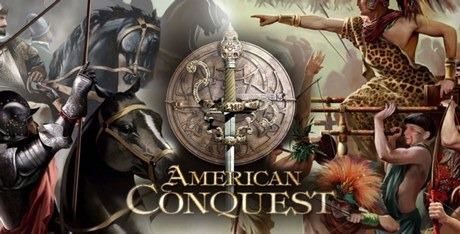
| a game by | GSC Game World |
| Platform: | PC (2002) |
| User Rating: | 8.5/10 - 4 votes |
| Rate this game: | |
| See also: | Download Strategy Games, Games Like Red Alert |
During the late 80s and early '90s the Commodore Amiga was at the height of its power. If gaming history had distinct eras, this period would have been known as the Sprite Age. Nothing else mattered. Developers actively competed against each other to see who could get the most animated characters on screen at once. The world went mad for sprites.
Graphics, for once, took a back seat. Gameplay was lost in a throng of spindly arms and legs, but nobody cared. And as for the plot? Well, if people wanted stories they'd read books wouldn't they? Thankfully, this sprightly foray was soon found wanting. Gamers demanded gameplay and fun was back. Innovation began to seep into lethargic minds; the Amiga stood down and the PC began flexing its muscles.
All fads and phases are cyclical. In other words, what was fashionable once will be so once again. So, welcome back to the sprite -or to be precise 16,000 of the little buggers.
GSC Game World's American Conquest, like its forebearer Cossacks has pretty much one thing on its mind, and that is to dazzle you with the sheer number of units it can place on one map. And yes, 16,000 soldiers is an impressive amount of units to control; undoubtedly the developers must have enormous brains to create such mind-boggling figures. But it's all irrelevant. Attention to detail, innovation, design and great gameplay must be there too.
American Conquest is lacking many of these qualities. The eight separate campaigns and 12 civilisations are interesting from an educational perspective. If nothing else they do their best to liven up what is essentially a time consuming and unrewarding RTS experience.
Put it this way: if you can build a small settlement, successfully start gathering and producing all the right resources and then sit around for eight hours while building and organising an army of 16,000, and thoroughly enjoy doing so, then you deserve an award. Everyone has their limits and for the majority of us, the process of allocating officers, standard bearers, and drummers to individual platoons is a dozen or so mouse clicks too far. It appears that in its haste to create a realistic experience, GSC Game World forgot to make the experience entertaining. Fans of Cossacks may think this is a bit on the harsh side, but quantity over quality is not the way forward. Gameplay is what we want -and it's difficult to find here.
Euro Referendum
There are times when American Conquest is not such a chore. If you can attain that higher plane of existence required to become totally at one with your strategy, a magical thing happens. You are transported through the pain barrier into a blurred state of consciousness where you can almost feel yourself having fun. It doesn't last long though - there's usually something waiting to bring you back down to earth with a crash. One fairly common cause of anguish is to assemble a reasonable force of about 1,000 units (which takes a good few hours) and then just as you're about to give your marching orders your entire army drops dead from famine. It's hard to describe exactly what kind of emotion such drama evokes, needless to say it doesn't leave you with a great deal of motivation to carry on. Another oddity is the enormous gulf in intelligence between the European civilisations and the native American tribes - and it's not in the way you might think. Europeans can barely button up their own uniforms without repeatedly poking themselves in the eye, whereas the wily old native Americans never miss a trick.
It's A Jungle Out There
The way Mayans appear out of the trees, take a few pot shots at the Spanish troops with either a bow or a blowpipe and then move back into the safety of the treeline is eerily smart. In contrast, the idiotic Spaniards (and French and British and Americans) cannot resist following a lone native marksmen back into the jungle and straight into an ambush. Why a supposedly modern, well-trained and disciplined army falls for the same old trick every time is a mystery -and the worse thing is there's no way to stop this from happening.
The only choice you have is to set your soldiers so they don't move from a certain spot. Typically, the problem with this is that they stop moving completely - even if they are being attacked. So, with any soldier whether they are cavalry, riflemen or infantry, you have a simple decision to make while you're waiting for the other 15,000 troops to be bom. Do you let them wander into the jungle to certain doom, or do you fix them to one spot on the map so they can be shot more easily?
For its many sins American Conquest does have its graphical charms. The detail on the soldiers and their weaponry is superb for this type of isometric viewpoint - you even get to see them reload. The landscapes too are intricately detailed. What is poor though is the variety of landscapes. Every map looks identical; a bit of forest here, a bit of desert there, some mountains, an idyllic waterfall, there's nothing really to distinguish one level from another.
Soldier On
Unfortunately, the real problem with the graphics is that it's impossible to see, let alone select, your whole army at once. There simply isn't a monitor in existence big enough to accommodate everyone. If you want to see your troops as a whole entity, you have to switch to a kind of blimp-cam. Of course, when you do this in battle you lose all atmosphere because you may as well be standing on the moon.
American Conquest is the modern day equivalent of playing with toy soldiers - and this is clearly something with niche appeal. Our advice is this: if micro-management and painstaking troop manoeuvres do nothing for your own personal RTS radar, avoid American Conquest. Go instead for a more accessible, varied, entertaining and playable strategy classic like Age of Mythology or Medieval: Total War.
For Cossacks fans, it's a different story. Since the interface is virtually identical and the general game mechanics are more or less unchanged, there could be something here for you. Should you be doubly blessed with a healthy fascination with early American history, you may well love American Conquest. Mind you, having the ability to think about 16,000 different things at once will be a great help in the end.
Download American Conquest

System requirements:
- PC compatible
- Operating systems: Windows 10/Windows 8/Windows 7/2000/Vista/WinXP
Game Reviews
Francisco Pizarro's rout of the Incas at the start of the 16th century is one of the most despicable events in the annals of human history. The treacherous Spaniard tricked the naive Peruvians out of all the land and wealth they owned and then had them executed. Even by normal conquistador standards his greed and ambition were extreme. But it was this kind of cruelty that set the standards in America and over the next few hundred years things only got worse. Welcome to American Conquest.
Army Men
With more than 300 years of New World conflict, 42 missions across eight different historical campaigns and 12 separate nations including Spain, England, Aztecs, Incas, Mayas, Sioux, Iroquois and the American Union, American Conquest is a hardcore monster of a strategy game. If you've experienced the delights of Cossacks, then prepare yourself for an all-encompassing gaming experience that's ten times as intense.
After spending a weekend tearing up the Americas with a new preview version, it's clear that when this historically accurate RTS hits the shops in early 2003, it's likely to be about the toughest thing you've ever played.
One of American Conquest's main claims to fame is that you can control up to 16,000 troops at the same time, and, believe us, from what we've seen you're going to need every one of them. From the outset, the enemy Al is finely tuned. Native tribes specialise in guerrilla tactics and constantly hit your base from all sides with small groups, and then quickly disappear back into the jungle. So, when playing as the Spanish, for example, you have to always think ahead - like a game of chess.
Winning a battle is not just a case of throwing hundreds of troops at your Mayan attackers. Any bulldog tactics usually result in your neatly arranged formations of riflemen and swordsman being lured into narrow Andes valleys and slaughtered in a manner that, in fairness, they probably deserve.
To beat the wily native defenders you have to play them at their own game. Elevation is crucial. If you can line an escarpment with ranged weaponry and shoot down into the mob, satisfaction is guaranteed. Likewise, if you can occupy one of the many caves and cubby holes dotted around the numerous massive maps, the surprise element as your soldiers pop out like demented, psychotic rabbits will reap major dividends.
In the final version of American Conquest, it should be interesting to see how these specialist tactics affect the feel of the whole game. In theory, what we should actually be presented with is not just a 300-year parade of evolving weaponry, but a rolling demonstration of how tactical warfare itself evolved. And as we've stressed before, the size of the game means that you can stage your historical clashes on the scale at which they actually would have occurred.
Frigging In The Rigging
The focus on historical accuracy is not just limited to Al and tactics either. The developers have tried to keep the visuals as realistic as possible. Playing American Conquest is a surprisingly pleasant aesthetic experience. Individual soldiers clean and reload their weapon after each shot is fired. Even forts have puffs of gunpowder wafting out of them as soldiers try desperately to gun down the relentless enemy advance.
Ships are also an impressive sight. Resplendent with full rigging and casting a shimmering reflection on the rolling waves, the navy is a truly awesome sight. On top of this, maps evoke a huge amount of atmosphere and realism, with rivers that flow at varying speeds and even magnificent waterfalls.
The old-school isometric style might be a sticking point for some, and admittedly it does look a bit haggard alongside the likes of Praetorians (which you can check out on our cover discs). But when it comes down to it, American Conquest, like Cossacks, blends functionality with ageing good looks (a bit like Sean Connery), and any criticisms will probably arise from simple prejudice rather than constructive reasoning. Certainly as far as we can tell, this should be about the best looking isometric RTS around.
Left Leg In, Right Leg Out
By far the most awkward aspect of playing American Conquest will be managing your vast armies. In the version we've been hacking away at, there appeared to be a fair amount of indecision in the ranks. When you select a large group of soldiers and send them to a certain location, half of them go one way and the other half choose another. This is purely because the armies are so massive and spread out over such huge areas, a soldier on the east flank is in a completely different part of the map to a soldier on the west flank.
Ultimately, to work with such mamoth numbers, it will boil down to good management. Dividing your armies up into manageable chunks should quell some of the problems. But still, it means that to succeed in American Conquest you will need to be one hell of a strategist. And if our strategy goes to plan, we'll have a definitive verdict of this gargantuan game within the next few months.

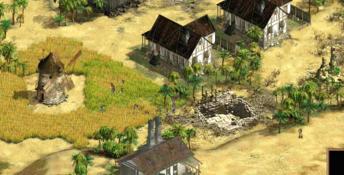
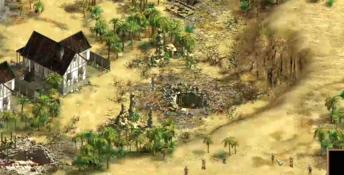
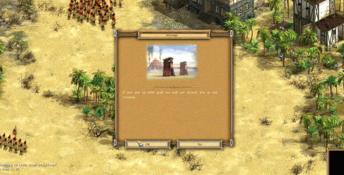
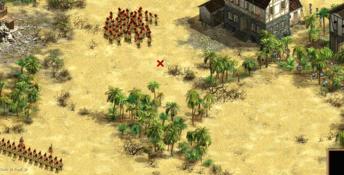
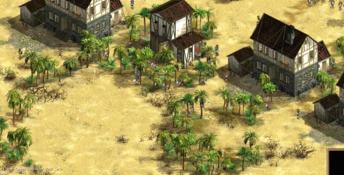
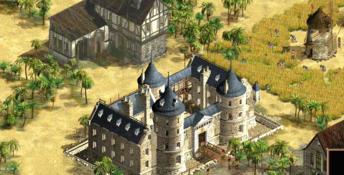
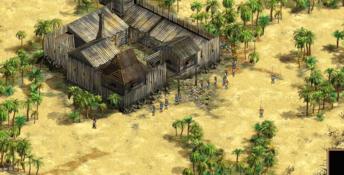
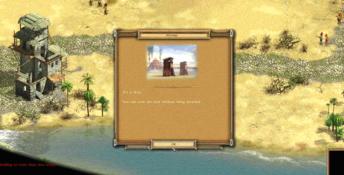
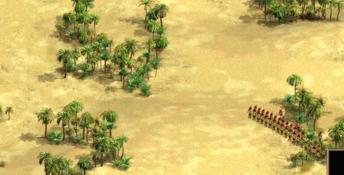
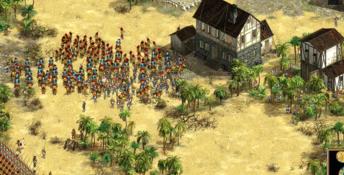
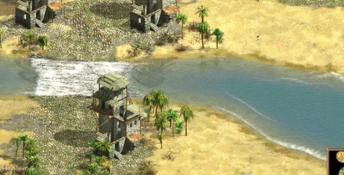
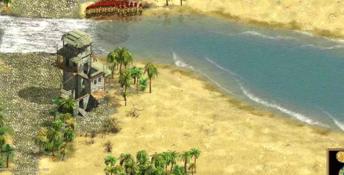
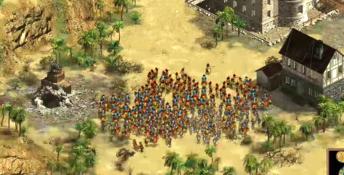
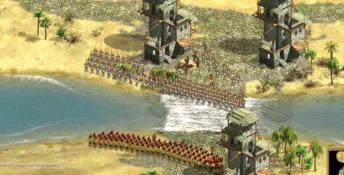
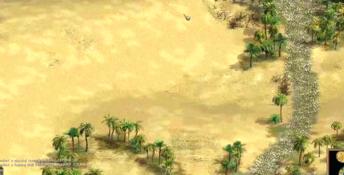
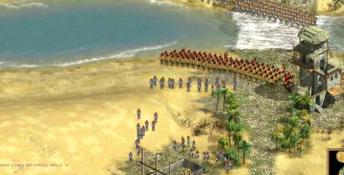
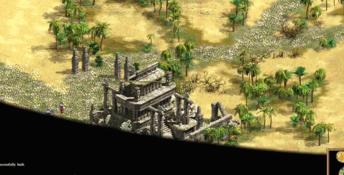
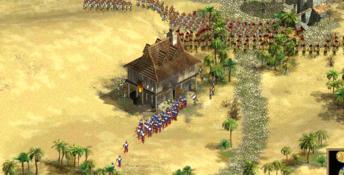
 Armed
Armed
 Armies Of Exigo
Armies Of Exigo
 Baldies
Baldies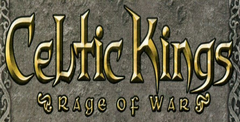 Celtic Kings: Rage of War
Celtic Kings: Rage of War Celtic Tales
Celtic Tales
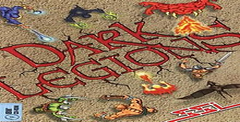 Dark Legions
Dark Legions
 Far West
Far West Imperator: Rome
Imperator: Rome
 Merchant Prince
Merchant Prince
 The Patrician
The Patrician
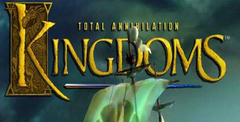 Total Annihilation: Kingdoms
Total Annihilation: Kingdoms
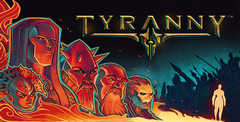 Tyranny
Tyranny
 Warzone 2100
Warzone 2100